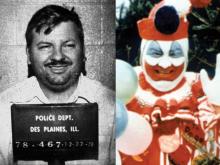
Vice-President Spiro Agnew and Richard Nixon
Former Vice President Spiro Agnew was told by President Nixon’s chief of staff to resign, to “go quietly…or else.”
by David Robb
It’s not every President of the United States who plots to assassinate his own Vice President, but that’s what Richard Nixon did, according to Spiro Agnew, Nixon’s own Vice President. Agnew even wrote a book about it. It’s called Go Quietly…Or Else.
Most people have never even heard of it.
In the book, Agnew wrote that President Nixon – acting through Alexander Haig, the President’s chief of staff – threatened to have him assassinated if he didn’t resign – thus the title of the book.
The threat on his life, Agnew wrote, came in early October 1973. The Watergate Scandal was growing larger every day, threatening to take down the Nixon presidency. But Agnew had more immediate concerns. An investigation had uncovered credible evidence that he’d taken bribes while governor of Maryland, and pressure was building for him to resign.
Nixon, worried about his own skin, decided to throw Agnew to the wolves.
Agnew, however, insisted that he was innocent and refused to go quietly…that is, until Alexander Haig made it clear what would happen if he didn’t.
“I received an indirect threat from the White House that made me fear for my life,” Agnew wrote. “I did not know what might happen to me. But I don’t mind admitting I was frightened. This directive was aimed at me like a gun at my head. That is the only way I can describe it. I was told, ‘Go quietly – or else.’”
“I feared for my life,” he wrote. “If a decision had been made to eliminate me – through an automobile accident, a fake suicide, or whatever – the order would not have been traced back to the White House. I was just a pawn on the chess board to be played in whatever way would help Nixon survive.”
According to Agnew, Nixon was worried that if he didn’t resign, the House of Representatives would start impeachment proceedings against Agnew, and that “there were plenty of people around who would want to make it a doubleheader.”
But Agnew, who the Democrats in Congress hated even more than Nixon, quite astutely saw himself as Nixon’s only hope of not being impeached.
“Mr. Nixon did not seem to realize that I was his insurance policy against his own ouster,” he wrote. “The left-wingers who despised us both would never push him out of the White House until they were certain I would not be around to take his place.”
But Nixon panicked and pushed him out anyway.
A week after receiving the threat, Agnew resigned – the first Vice President of the United States to leave office in disgrace.
Ten months later, Nixon resigned – the first President of the United States to leave office in disgrace.








